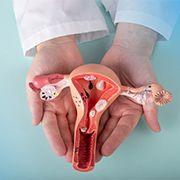All You Need To Know About Murine Typhus: What Is It and Should You Be Worried?
In This Article
All You Need To Know About Murine Typhus: What Is It and Should You Be Worried?
Sreemoyee
Updated on October 16, 2024
Medically verified by Dr. Arya
Fact checked by Dr. Fazeela

Wellness
10 min read
In a world where we’re constantly battling new and emerging diseases, an illness like murine typhus might not be on your radar. But with the first recent detection of a case making headlines, it’s a good time to learn about this lesser-known disease.
Whether you’ve come across the term in passing or you're hearing about it for the first time, don’t worry—by the end of this blog by Karepedia, you'll be well-equipped with all the essential information about murine typhus.
What Is Murine Typhus?
Murine typhus, also known as endemic typhus, is a bacterial infection caused by Rickettsia typhi, and it’s spread mainly through fleas. These fleas often come from rats (hence "murine," which means related to mice or rats), though they can also be carried by other animals like cats and opossums. Humans typically get infected when they come into contact with flea feces through a bite or scratch.
Sounds a bit gross, right? But don't panic yet! Murine typhus is relatively rare and treatable. However, in some cases, it can cause severe complications if not treated early.
Symptoms: What Should You Look Out For?
Murine typhus can sometimes be confused with the flu or other viral illnesses because the symptoms are quite similar. If you’ve recently been in contact with animals or areas that may have fleas, keep an eye out for:
-
Fever and chills
-
Headache and body aches
-
Nausea and vomiting
-
Rash, often starting on the trunk and spreading
These symptoms usually appear 1-2 weeks after the flea bite, so there may be a delay between exposure and feeling unwell. Although most people recover fully with appropriate antibiotic treatment, ignoring these symptoms could lead to complications such as liver or kidney damage in severe cases.
 10mint
10mintSexual Health Matters: How To Maintain Your Sexual Health ?
 10mint
10mintYour Guide to Sexual Health Screening and Preventive Measures
 10 mints
10 mintsSTDs in Women: Comprehensive Guide on Symptoms and Treatments
Book Your Consultation Now
The First Case Detection: What Does It Mean?
Recently, a case of murine typhus was detected, sparking attention due to its rarity. The individual diagnosed had been exposed to fleas, leading to the infection. While cases are generally sporadic and isolated, the news serves as a reminder of the need for awareness, especially if you live in areas where rodents or fleas are common. It's not the kind of thing you need to panic about, but staying informed and taking basic precautions can go a long way in keeping you safe.
How Do You Catch It and How Can You Avoid It?
As mentioned, murine typhus is spread by fleas, so controlling flea exposure is key to prevention. Here are a few simple steps you can take to lower your risk:
1. Control fleas on pets: Regularly treat your cats and dogs with flea prevention products. It’s also a good idea to limit their exposure to wild animals that may carry fleas, like opossums or stray animals.
2. Keep your home clean: Rodents like rats and mice can bring fleas into your home. Make sure your living area is free of food waste and other things that could attract these animals.
4. Be cautious in flea-prone areas: If you’re in environments where you might encounter fleas (e.g., wooded areas, barns, or places with heavy rodent populations), consider wearing long clothing and using insect repellent.
Treatment: What Should You Do If You Get It?
If you suspect you have murine typhus, don't wait to see if it goes away on its own. Seek medical attention as soon as possible. The good news is that antibiotics, particularly doxycycline, are very effective in treating murine typhus, and most people recover fully when treated early.
Doctors will usually diagnose it based on your symptoms, history of possible exposure, and sometimes blood tests to confirm the presence of Rickettsia bacteria. Once diagnosed, treatment is straightforward, but timing is crucial to prevent complications.
Stay Safe and Informed
So, should you be worried about murine typhus? Probably not—but it's worth being aware of, especially if you’re in areas where flea infestations are common. The recent case detection has certainly sparked renewed attention, but by staying informed, keeping your environment clean, and treating your pets for fleas, you can reduce your risk significantly.
If you ever suspect you might have murine typhus, don’t hesitate to get checked out. Early treatment makes a world of difference, and being proactive is always the best way to stay healthy.
It’s spread by fleas: Primarily those that feed on rats, but other animals can carry them too.
Symptoms can mimic other illnesses: Fever, rash, and headache are common, but if you’ve been in flea-prone areas, it’s worth mentioning to your doctor.
Antibiotics work well: Early treatment with antibiotics like doxycycline can prevent severe complications.
Prevention starts with controlling fleas: Keeping your pets and living environment flea-free is one of the best ways to avoid exposure.
Cases are rare but possible: The recent detection of a murine typhus case reminds us that while it's uncommon, it’s still around and preventable with simple measures.
Source Links
Karepedia sources its information according to strict guidelines, consulting scholarly research centres, peer-reviewed periodicals, societies for medical professionals, and renowned health and wellness magazines. No tertiary references are used by us. Please refer to our editorial policy. to learn how we maintain the accuracy and timeliness of our material.
Centers for Disease Control and Prevention (CDC)
World Health Organization (WHO)

